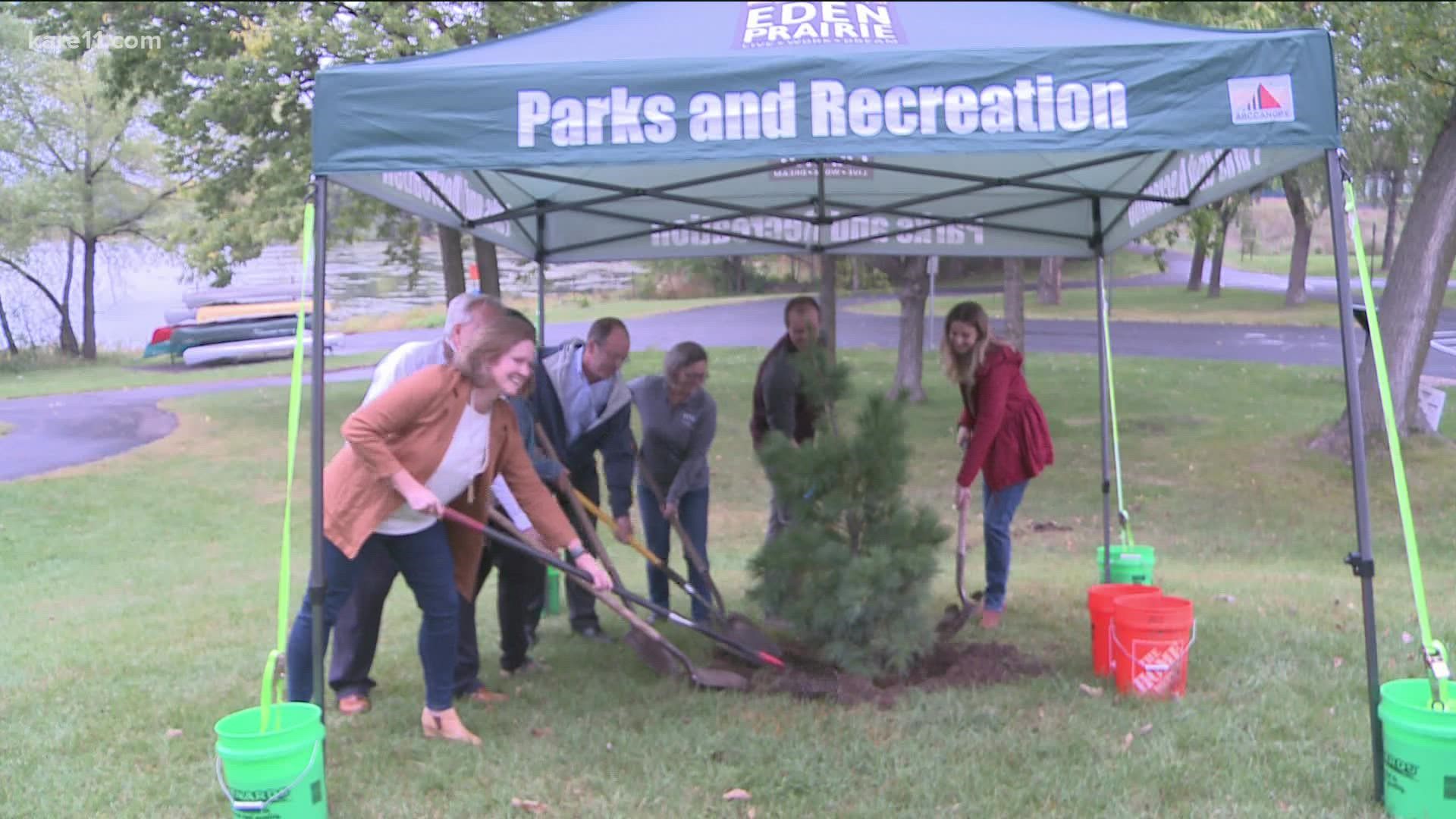EDEN PRAIRIE, Minn. — This summer's extreme weather is showing the impact of our planet's changing climate, and organizations across the world are taking notice.
On Tuesday President Biden will address the United Nations, and one of the items he'll discuss is the need for world leaders to work together to address climate change.
Closer to home, Governor Tim Walz declared that Sept. 20-26 will be Minnesota Climate Week.
In his proclamation, the governor said that climate change threatens the things that make our state a great place to live, from the lakes to the farmland to the clean air.
The proclamation also said the Walz-Flanagan administration is committed to collaborative action, working with the people most affected to think outside the box and find solutions to climate change.
The DNR kicked off climate week by planting a tree at Round Lake Park in Eden Prairie on Monday.
Officials said the tree will help reduce carbon dioxide in the atmosphere over the next 30 years.
According to the Minnesota Department of Natural Resources website, the state's climate is already changing. Temperatures have risen almost three degrees since 1895, and on average we've received 3.4 more inches of rain annually.
Heavier rains have become more common, and in the last 20 years Minnesota has seen a significant uptick in devastating, large-area extreme rainstorms.
And those famously frigid Minnesota winters aren't as cold as they once were. Even though Minnesota always will see periodic severe cold spells, the long-term decline in cold extremes is all but guaranteed to continue.
To read more about the records of climate change in the state, check out the data on the DNR's website here.
So what are some things that we can do in everyday lives to slow the changing climate? Here are some tips from the U.S. Environmental Protection Agency:
- Use energy efficient products in your home
- Make sure the doors and windows in your home are properly sealed to keep your cool or warm air inside.
- If you own your home, consider a rooftop garden, a cool roof and sustainable landscaping
- Conserve power whenever possible, including adjusting your thermostat, turning off lights when you aren't in the room, and unplugging electronics when they aren't in use
- Switch your home's power to a renewable energy source like solar, wind or hydropower

